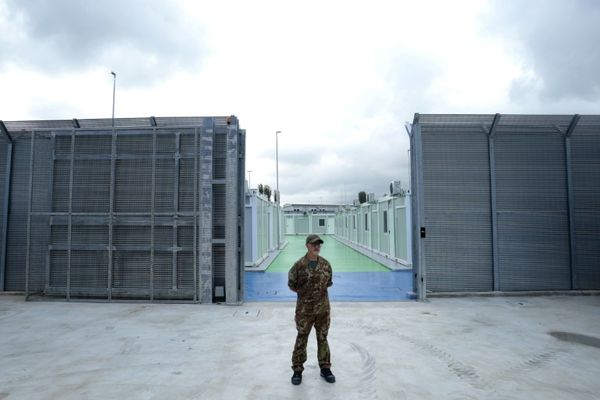
BANGKOK -- Following the easing of coronavirus-related border restrictions in Southeast Asia, hopes are high for a revival in tourism as the sector gears up for the post-pandemic era.
Columbia Pictures Aquaverse, a theme park whose launch had been postponed one year due to the pandemic, finally opened on Oct. 12 in the suburb of Pattaya, a popular tourist destination about a two-hour drive from Bangkok.
The facility features a large swimming pool and water slides based on popular movies such as "Ghostbusters" and "Jumanji." "We want to bring our stories to tourists around the world in new ways, not just through movies or books," said an official linked to the park.
Plans have also been revealed for a new theme park with attractions based on movies by the U.S. film studio Paramount Pictures on the island of Bali, Indonesia, one of the most popular tourist destinations in the region.
According to local media reports, it will feature hotels and other facilities in addition to attractions, and will be one of the largest theme parks in Southeast Asia, even bigger than Tokyo Disneyland. It is expected to open in 2025.
The easing of pandemic-related border restrictions kicked off in spring in Southeast Asia.
Travelers are no longer required to present proof of vaccination or negative certificates upon entry into Thailand, where border rules have been operating almost as normal since October.
Meanwhile, Indonesia, Singapore and Malaysia have eliminated quarantine requirements for foreign tourists.
Japanese companies are also anticipating a recovery in the Southeast Asian tourism sector.
Seibu Prince Hotels Worldwide Inc. is planning to open The Prince Akatoki Riverside Bangkok in the autumn of next year at the earliest, and Hotel Okura Co. is planning to open a hotel in Jakarta with Mitsubishi Estate Co. in 2025.
As of 2019, tourism spending accounted for 19.7% of exports in Thailand, 9.2% in Indonesia, and 8% in Malaysia. Tourism is an important industry supporting domestic employment in the region, so the decline in the number of foreign tourists has had a significant impact.
However, uncertainty remains as a large proportion of tourists in Southeast Asia in the pre-pandemic era were Chinese, but Beijing has maintained its zero-COVID policy, prioritizing infection containment over the economy.
An official of the Thai travel agents association said, "Although there are bright signs, it's hard to predict where the pandemic situation is heading."
Read more from The Japan News at https://japannews.yomiuri.co.jp/







